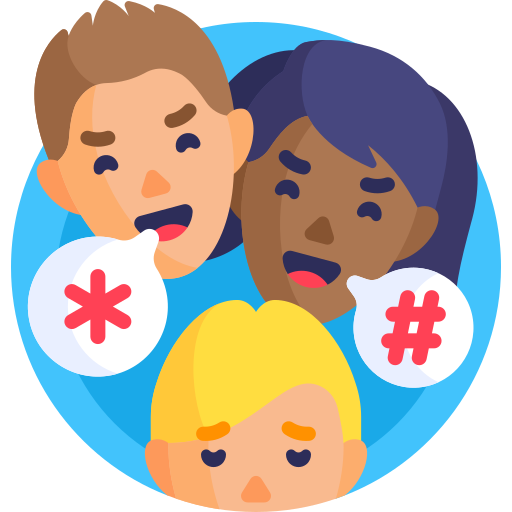Have you ever heard the phrase that it's not what you say, but how you say it? The way you say things is especially important in healthcare.
The short clip below shows what happens when healthcare professionals say things the wrong way.
Don't be like the intern in the video!
Develop top-notch verbal communication skills that are pivotal for a healthcare career.
Verbal Communication Skills Are Vital in Healthcare
You need to understand the role and benefits of health communication.
In healthcare, talking is a big deal. You must communicate clearly, honestly, and accurately with people of all ages, genders, cultures, and health literacy levels. So choose your tone carefully, and don't let distractions show. Whether you're dealing with personal problems or having a bad day, you need to remain focused.
The video below provides a brief overview of health communication:

Examples of verbal communication in health care include:
Consulting with a patient about a treatment plan.
Giving your patients and colleagues clear instructions.
Seeking out your supervisor to help you with a problem.
Asking a colleague for advice about a client or patient.
Here are some basics that will help you connect with patients:
Show interest and encourage your patients by asking, "Can you tell me more about what's going on with you?"
Use the patient's first name or preferred name. Make sure to ask them which they prefer.
Speak using plain language and avoid medical jargon and technical terms.
Develop Your Vocabulary for Clear Communication

When you communicate verbally, your patients will be better able to comprehend and use health information.
Employing techniques to improve your verbal communication skills will give patients more assurance about their medical care. They'll be more likely to adhere to treatment schedules.
Remember to keep communication simple!
Know your audience!
When speaking with colleagues and other healthcare professionals, use precise medical terminology like "dyspnea" instead of "shortness of breath".
Use patient-friendly language to simplify technical medical jargon. Say "heart attack" instead of "myocardial infarction".
Use your patients' words to describe their illness to ensure understanding.
To ensure understanding for patients who don't speak your language, find a trained
interpreter.
Be specific and concrete.
Instead of saying, "The medication may cause some side effects," say, "This medication may cause headaches."
Use the "teach-back method". Ask patients to retell important information after you tell them about a treatment plan.
Show Empathy and Compassion
Healthcare professionals often "find it difficult to remain empathetic." Showing empathy is a considerably more challenging task than simply feeling sad for someone. Empathy means showing support and non-judgment through attentive listening.
Compassion is a key ingredient in healthcare. Studies demonstrate that compassion can reduce anxiety, hasten healing, and make it easier for patients to manage long-term diseases.
Here is an example of why empathy and compassion are necessary:
You can evoke fear, anxiety, and discomfort if you use an indifferent tone. Show compassion by understanding their needs and expectations. Make them feel at ease enough to disclose their medical history to you.
When breaking terrible news, show empathy to reassure them and facilitate understanding. You can express empathy both verbally through sympathetic words, and nonverbally through compassionate touch and kind facial expressions.
 Image created by Marko Scantlebury using Adobe Firefly
Image created by Marko Scantlebury using Adobe Firefly
Practice Active Communication
Healthcare leaders can help improve their team’s verbal communication skills through daily interactions and various team-building exercises.

Example exercises include:
Role-playing: Simulate patient interactions and receive feedback on your communication style.
Back-to-back drawing: Sit back-to-back with a partner. Describe a shape to your partner while they try to draw the shape on a piece of paper. Check if your speaking and listening skills led to an accurate drawing.
Tell stories: Explain a work experience to your colleagues. Structure the story around the characters involved, the conflicts and struggles you experienced, and the goal you worked towards. Discuss the situation as a group.
Overcome Communication Barriers

Barriers to communication can lead to weak interactions with patients. Do your best to reduce the following barriers:
Physical barriers: Create a safe environment to talk with patients effectively. You do this by closing the door, opening the blinds, and reducing outside noise.
Social barriers: Adapt your speech to overcome different ideas about healthcare that might come from language, religion, culture, or age.
Psychological barriers: When it comes to patient-provider communication, anxiety, stress, and conditions like dementia can create mental roadblocks. Listen, show empathy, and be supportive.

Remember, practice makes perfect! With constant practice, you can develop your verbal communication skills to manage any situation.
Quiz
Which of the following strategies can help overcome common communication barriers in patient interactions? Select all that apply:
Techniques to Enhance Verbal Communication Skills

Build trust and rapport to resolve conflict, ensure accurate diagnosis and patient compliance, and improve health outcomes. Consider these key listening skills that will help you hone your skills:
Active Listening
Stay focused and avoid distractions.
Prompt the speaker to go into more detail, which results in a deeper comprehension.
Ensure all parties comprehend what has been discussed by summarizing key points.
Don't interrupt the speaker when they're talking to you.
Observe the speaker's eye contact, facial expressions, and body language to learn more about their emotions and ideas.
Clear Communication
Speak moderately, enunciate your words, and pause where appropriate.
Acknowledge the speaker through body language and vocal cues.
Empathy
Acknowledge patients’ feelings and concerns.
Provide a thoughtful response to show that you're engaged and understand the speaker's message.
Give and Receive Feedback
Feedback can create a culture of open communication and continuous improvement.
— Bianca Wollman, healthcare consultant
Peer feedback: Ask your colleagues and mentors for feedback regularly.
Patient feedback: When talking to patients about their health status or treatment plan, encourage them to be open about what is going well and what needs improvement.
Staff performance assessment: Share patient feedback for healthcare culture and continuous improvement. It makes communication easier and creates trust. Constructive discussions uncover ways to improve patient care.

Watch the video and take note of how feedback is used in healthcare.
Take Action

Knowing how to verbally communicate in healthcare impacts not only your workday but also the welfare of patients and the camaraderie of your colleagues.
What are your next steps to develop your verbal communication skills?
Your feedback matters to us.
This Byte helped me better understand the topic.

